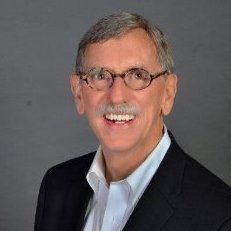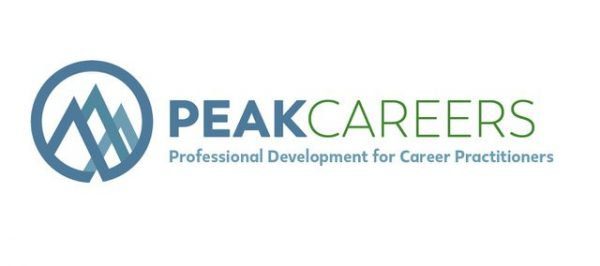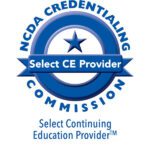
*Note this is not an exact transcript of our conversation, more of a summary of the essence of what we talked about.
Rich and I agreed on so many things, I felt I could have talked with him for hours on this topic. Here are the key highlights of our conversation. Our conversation begins with his article on the HEROIC Career Model.
The HEROIC model starts with ‘H’ for Hope which is really where our work needs to start. It starts with having hope about the future. It builds upon the concept of psychological capital for people to look towards the future with hope. We as career practitioners need to help people build their psychological capital and look optimistically about managing their future.
As many of you know about me (Jim), I love using the words “intentional serendipity” when I work with clients. It implies an ownership to the process and action to make something happen and also a willingness to accept chance events to create opportunity. Rich also feels that people need to be intentional and to look for “clues”. Example: When you are thinking about doing a podcast, suddenly you start seeing more information about podcasts. Taking inspired action and welcoming opportunities are terms he and his colleague use to explain what some call happenstance. (See my blogs on trusting your instincts)
When you look for those clues you are more open to discovering things by accident. Trusting our instincts is a key piece to career development and getting our clients to watch for those “clues” that come into our lives throughout the day…or night. Rich talks about the power of deep thinking in the shower…items just come to us. Sort of like you have to clear your mind from clutter in order to discover deeper thinking.
I asked Rich for advice for career practitioners and he spoke about helping people find ‘purposeful commitments’ in their life. In this new economy there just will not be enough work for everyone to “find purpose” within work alone. Finding ‘purposeful commitment’ in life will entail applying it to paid work, non paid, volunteerism, family, and all aspects of a person’s life. It is going to entail looking at the whole person experience. This is really contrary to the idea of having “work-life balance” which implies a formula of time in our lives. I call it “work-life integration” which really gets to Rich’s point of finding ‘purposeful commitment’ as well as flexibility in thinking and behavior in life.
We both agreed that we are suspect of the generational analysis out there, that millennials look like one thing and Boomers another. People are people and there is as much variability between as within millennials, Xers, and boomers. Rich and I both have kids that are millennials and we often see a disconnect between the literature that tries to stereotype a generation and what is in front of our own eyes. Yet, he says the behavioral observations about any generation are useful as new forms of empathy toward all folks who seek individuality.
I asked Rich, “What do we, as career practitioners, do now?”
- Stay positive, don’t look back and ask what does work. Ask our clients ‘what do you want to do more of?’
We really need to eke out people’s aptitudes, identify hidden assets and help expand individual gifts. - Where are you stuck? Often people focus on seeing things as obstacles and our job is to help them reframe their situations. Ask clients 3 other ways any situation could be seen by others and this helps them see they have a choice. Sometimes people need ways to see that habits and thinking are not permanent but rather overgeneralized. If you can change something by 1% what would that look like? (ex: office worker driving you crazy… take a walk outside for 5 minutes to get away) This changes habits, thinking, and you have new data for your response. Habits typically are changed 1% at a time, in increments. Self-help does not work quickly if at all…it requires lots of small steps, accountability, and reinforcement.
- Ask how do you differentiate yourself from others? What are your natural aptitudes and how do they show up. Passion is only significantly useful when paired with natural aptitudes.
A couple of other interesting things that came out is our love for card sorts. I offer card sort workshops that include Knowdell’s Skills Card sorts with an additional 3rd sort from his instructions. I also can add on a two hour session where people choose from among over 12 different card sorts I have. Rich is now the lead trainer for Knowdell’s card sorts. I love his acronym GOAL that he uses. Getting Out Articulated Language. Getting our clients to talk about their skills, values, passions, etc… can be difficult because they often do not have the language. Card sorts can be great tools to help people articulate their thoughts.
Thank you Rich for a wonderful conversation
and insight to your thoughts on the future of work.
—————————————————-
Rich Feller Ph.D is Professor of Counseling and Career Development and University Distinguished Teaching Scholar Emeritus at Colorado State University. Past-President of the National Career Development Association he shared these concepts during NCDA’s 2016 Global Conference keynote in Chicago. Check out these websites to see what else Rich is doing. www.onelifetools.com and www.youscience.com
Jim Peacock is the Principal at Peak-Careers Consulting and writes a monthly newsletter for career practitioners. Peak-Careers offers discussion-based online seminars for career practitioners focused on meeting continuing education needs for CCSP, GCDF and BCC certified professionals as well as workshops for career practitioners and individual career coaching.
Sign up here to receive my TOP 10 TIPS WHEN WORKING WITH AN UNDECIDED PERSON. You can also receive the career practitioners newsletter which includes a variety of career topics, industry news, interesting events, and more.



Rich Feller is a real gem in the career development world! I treasure the opportunities I have had to collaborate with him and learn from him through NCDA!
Thank you Maggie for your comment, and yes, I’ve learned something from Rich every time I have heard him speak. He is a true professional in our field.